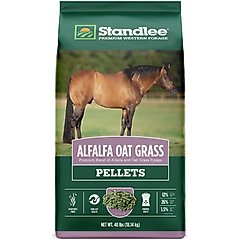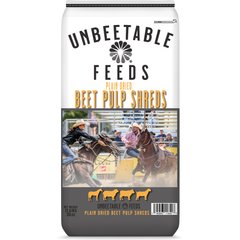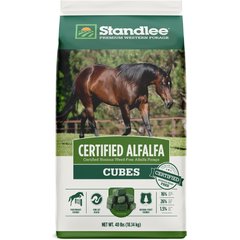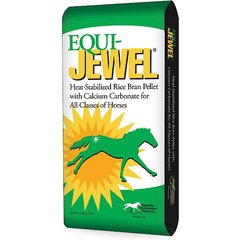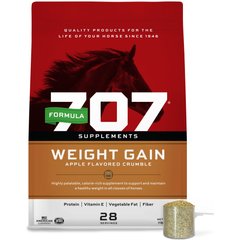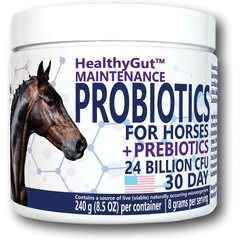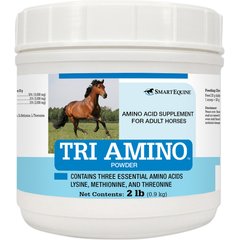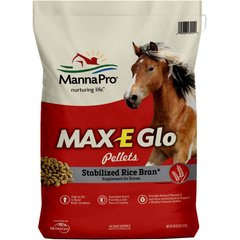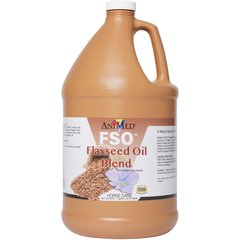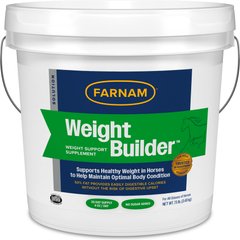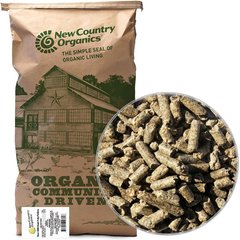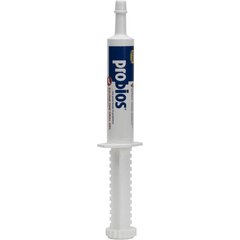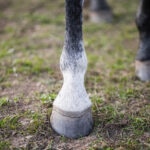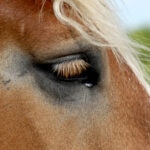How To Choose the Best Weight Gain Supplements for Your Horse
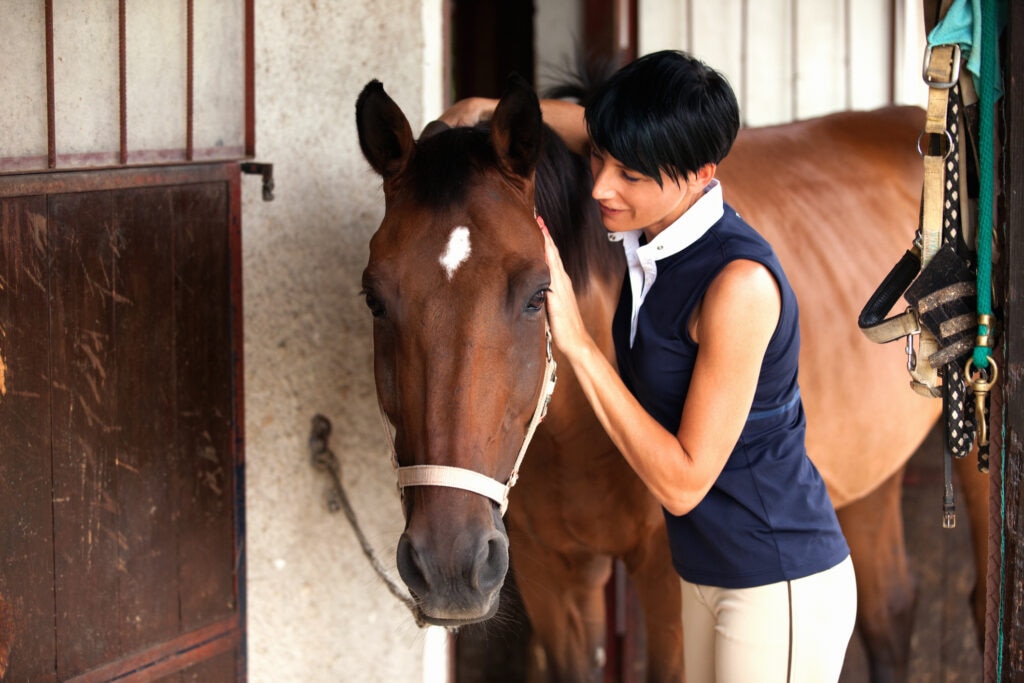
Photo by Casarsa/E+
Why do some horses seem to effortlessly stay at their ideal body weight while others struggle to maintain condition, no matter how much they eat? Weight loss or difficulty gaining weight in horses can occur due to age, an underperforming digestive system, health issues, intense workload, or individual metabolism.
As a result of their low body condition, underweight horses can experience a decline in performance, welfare, and overall health.
Weight gain supplements for horses can play a valuable role in supporting healthy weight maintenance—provided they are used correctly and fed as part of a balanced diet.
Key Takeaways
- Not all weight issues can be solved by feed and supplements alone; addressing any dental issues, parasites, or underlying illness with your veterinarian should always come first.
- Supplements for weight gain in horses are safest when they provide extra calories through fat, protein, and digestible fiber rather than through nonstructural carbohydrates (NSCs), starch, and sugar.
- Choosing the right horse weight gain supplement depends on age, overall health, metabolism, workload, and current diet.
- Gradual introduction, careful monitoring, and veterinary guidance are essential when introducing a new equine weight gain supplement.
Why Do Some Horses Need Weight Gain Supplements?
Before turning to a supplement, horse owners should seek to understand why their horse is shedding pounds. Always work with your veterinarian to find and address the root cause of weight loss to avoid masking potentially serious underlying health issues.
Some common reasons horses may require a horse weight gain supplement include:
- Age: Senior horses may have trouble chewing or digesting nutrients efficiently.
- Dental issues: Missing, uneven, or worn teeth reduce forage intake. This is a common issue in older horses.
- High metabolism: Some breeds and individuals burn calories faster and require more overall calories to maintain their body condition.
- Stress: Herd dynamics, travel, or competition can cause stress-associated appetite and weight issues.
- Illness: Parasites or stomach ulcers can negatively affect weight and body condition.
- Poor diet: Low-quality forage or unbalanced nutrition can also hinder weight gain.
Factors To Consider Before Choosing a Supplement
Every horse is unique, and their diet—supplements included—should be tailored to their individual needs and any dietary restrictions. Owners should consider the following factors before purchasing horse weight gain supplements:
- Veterinary evaluation: Always first try to rule out parasites, ulcers, pituitary pars intermedia dysfunction (PPID, also known as Cushing’s disease), or other health issues as the root cause of weight loss.
- Current diet quality: A horse eating low-nutritional-quality hay will benefit more from more nutrient-rich forage.
- Horse’s age and workload: A hard-working equine athlete has higher caloric needs than a retired “pasture puff.”
- Balance of nutrients: Simply adding calories without ensuring proper vitamins, minerals, and protein ratios are met can create imbalances in the form of nutrient deficiencies and excesses.
Key Nutrients That Support Healthy Weight Gain in Horses
When you look for a weight gain supplement for your horse, consider these key nutrients:
1. Fats and Oils
Fats are calorie-dense and provide safe, slow-burning energy without the laminitis risk of starch and sugar overload.
Common equine fat supplements include flaxseed oil, soybean oil, and rice bran. These are excellent options for weight gain. Bonus: They also promote a healthy, shiny coat.
Protein
Protein is critical for muscle development and maintenance.
Protein sources like soybean meal, alfalfa-based products, and whey protein contain amino acids that support a healthy musculature, which is especially important in performance horses.
Recommended Products
3. Fiber
Digestible fiber, which is found in forage, fuels gut microbes and supports healthy digestion.
Beet pulp and hay cubes are high-calorie fiber sources often included in supplements for weight gain in horses.
Recommended Products
4. Vitamins and Minerals
Micronutrients (vitamins and minerals) may not directly add calories, but they help ensure the horse’s metabolism works efficiently. Vitamin E, selenium, and balanced minerals are essential for overall health and maximizing the benefits of any equine weight gain supplement.
Types of Equine Weight Gain Supplements
You’ll find many options when you search for supplements for weight gain in horses. It’s important to understand the different types available to suit your horse’s unique needs.
1. High-Fat Supplements
Products like rice bran, flaxseed, and vegetable oils are popular horse fat supplements. They deliver safe, concentrated calories.
Recommended Products
2. High-Calorie Commercial Weight Builders
Formulated pelleted or powdered weight builder products combine fats, proteins, and vitamins in a convenient package. They’re easy to feed and often highly palatable.
Recommended Product
3. Digestive Aids
Yeast cultures, probiotics, and prebiotics support gut function by promoting the growth of healthy gut microbes. These help horses’ guts maximize nutrient absorption, which is especially valuable when recovering from illness or stress.
Recommended Product
4. Muscle-Building Supplements
Amino acid (protein) blends, particularly lysine and threonine, support muscle growth and topline development. These supplements are most helpful for horses building fitness in a training program.
Recommended Product
Top Recommended Horse Weight Gain Supplements
Always choose a supplement that is recommended by nutritionists or veterinarians and has been thoroughly researched. The following supplements are among the top recommended:
- Stabilized rice bran products: Manna Pro Max-E-Glo Stabilized Rice Bran is a popular equine weight gain supplement providing fat, fiber, and vitamin E.
Recommended Product
- Flaxseed meal or oil: AniMed FSO Flaxseed Oil Blend Horse Supplement is rich in omega-3 and omega-6 fatty acids, supporting healthy weight and coat condition.
Recommended Product
- Commercial “weight builder” formulas: Farnam Weight Builder Supplement is a trusted horse weight-gain supplement that provides concentrated fat calories.
Recommended Product
- Beet pulp supplements: New Country Organics Non-GMO Beet Pulp Pellets Horse Supplement is a good source of safe, fiber-based calories. As with any other beet pulp product, you’ll want to soak it thoroughly before feeding to avoid esophageal obstruction (choke).
Recommended Product
- Probiotic blends for digestive support: Probios Equine One Oral Gel Probiotic Digestive Horse Supplement enhances feed efficiency and nutrient absorption, which helps horses extract the most out of the food they consume.
Recommended Product
How To Safely Introduce Weight Gain Supplements to Horses
Starting a weight gain plan for horses requires patience. Always:
- Introduce gradually: Mix new supplements into your horse’s grain slowly over seven to 10 days to prevent digestive upset.
- Monitor body condition score (BCS): Regularly track progress by measuring your horse’s BCS. The ideal score for most horses is between 4 and 6 on the 9-point Henneke scale.
- Adjust as needed: Increase or decrease the supplement as the horse responds, based on the manufacturer’s and your veterinarian’s recommendations.
- Prioritize forage: Even the best equine weight gain supplement should complement, not replace, a high-quality fiber diet.
Mistakes To Avoid
Here are some common mistakes to avoid when introducing a weight gain supplement to your horse’s diet:
- Overfeeding concentrates: Grain-heavy diets can cause metabolic issues, colic, and laminitis. The bulk of a horse’s diet should still consist of forage—hay or hay products such as hay cubes or hay pellets. Concentrates should only be added when forage alone isn’t enough to provide all required nutrients or maintain body condition.
- Skipping health checks: Supplements shouldn’t replace routine veterinary care. Your veterinarian plays a crucial role in diagnosing dental issues, stomach ulcers, or other conditions that could contribute to weight loss—and that supplements can’t fix.
- Over-supplementing: Mixing too many products can lead to nutritional imbalances and wasted money.
Weight gain supplements can be effective when paired with a balanced diet and good management. With the right approach, equine weight gain is achievable and your horse can thrive whether in the show ring, on the trail, or in retirement. By choosing wisely and introducing supplements carefully, horse owners can help their equine partners look and feel their best.

